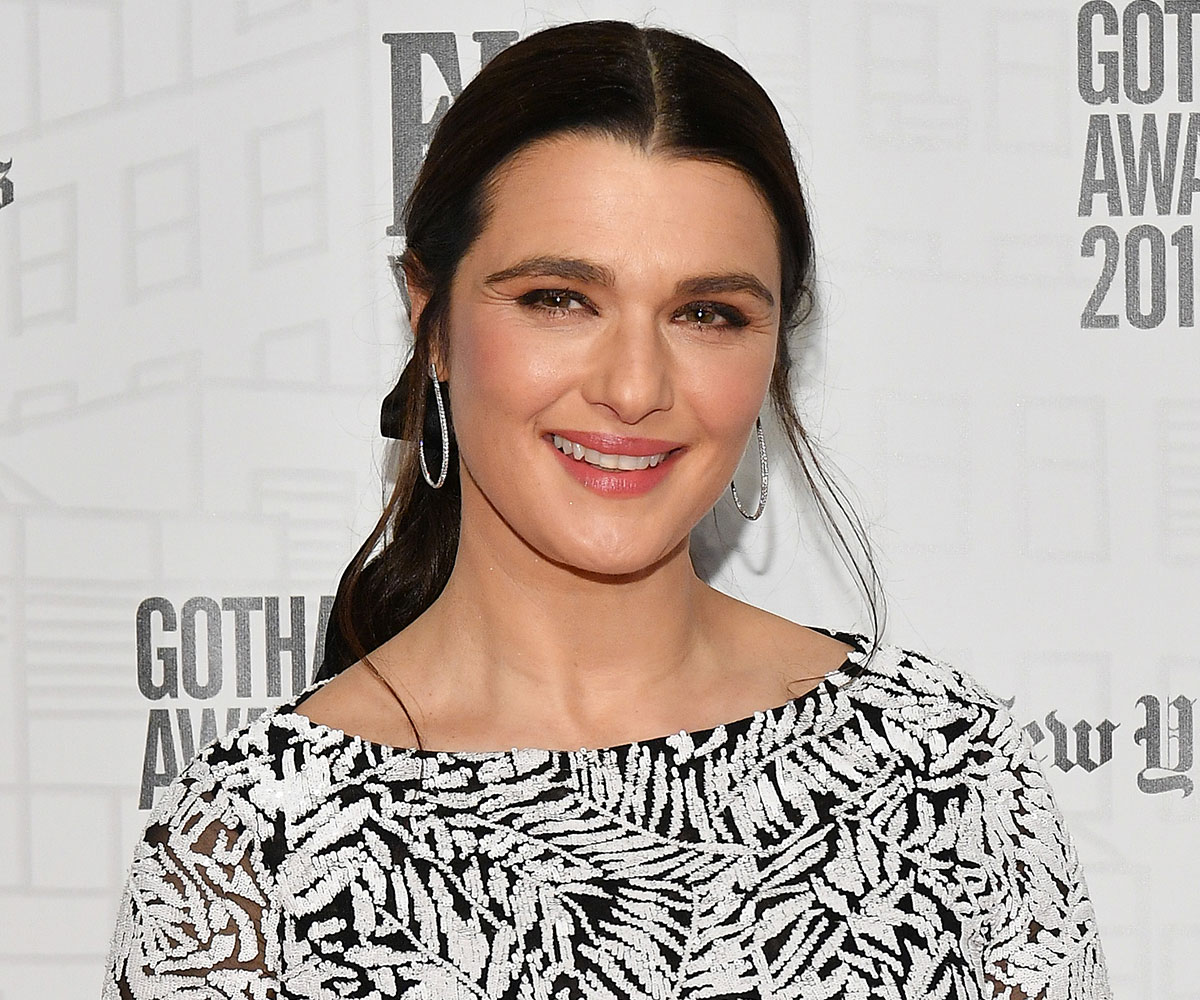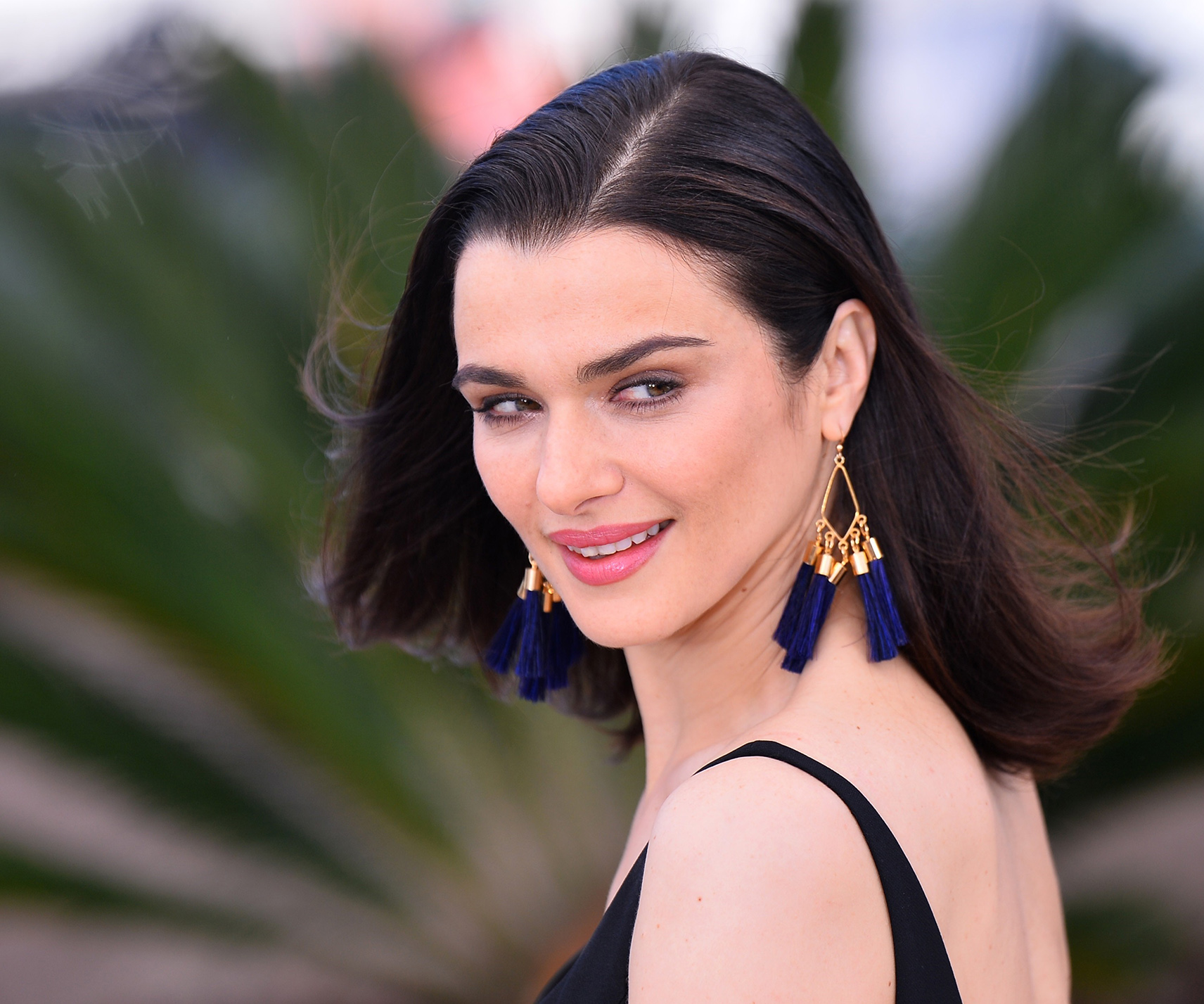“You have to be disobedient in order to find the truth about yourself,” Rachel Weisz tells Grazia over the phone from New York.
And right now, cinema is disobeying the rules it once set for itself, producing a plethora of films not only about women, but about women who don’t really want to sleep with men. In the wealth of films released in the run-up to the 2019 Oscars, lesbians are everywhere, from Keira Knightley’s Colette to Chloe Sevigny and Kristen Stewart’s Lizzie, to not one, but two of Rachel’s upcoming films.
First, the nuanced, powerful Disobedience, which Weisz scooped the rights to, tells the story of a love triangle. Lapsed Orthodox Jew Ronit (Weisz), returns home to her traditionally religious north London community to discover her ex-lover, Esti (Rachel McAdams) has married her friend Dovid (Alessandro Nivola).
Second, in the bawdy, hilarious and obscene The Favourite, Weisz is Sarah Churchill, the closest confidante, oldest friend and political advisor of the stricken and mopey Queen Anne (a stellar Olivia Colman). When Sarah’s cousin, the plucky Abigail Hall (Emma Stone) arrives with the drive to clamber up to a higher social standing, the two battle for the queen’s affections.

Image: Disobedience movie
Sarah and Abigail tear each other apart with glorious vindictiveness, and thankfully Rachel and Emma got on better in real life. Rachel, a self-proclaimed ‘internet virgin’ explains that Emma taught her what a gif was, laughing, “She couldn’t believe I didn’t know what one was!”
Rachel can’t remember the gif Emma used to introduce her into the world of moving memes, and won’t pretend she can, showing a devotion to accuracy that’s reflected in her work. Alongside 15 people from the Orthodox Jewish community, Naomi Alderman, the author of Disobedience, advised the production on all the relevant rituals and habits, so they could be reflected correctly. Was an equivalent advisor considered for the lesbian sex scene between Rachel and Rachel McAdams, I wonder?
“Oh no I’m afraid not, no, that was just our imagination,” Rachel concedes, adding, apologetically: “It was the director’s imagination in terms of the shots, and then it was up to our imaginations with the emotion. Do you think we should have had a lesbian consultant?”
She’s genuinely curious. There’s been such a historic dearth of lesbian sex scenes, I say, that there’s so much pressure on each new one to un-tread previous mis-steps. Despite one particular act which I won’t spoil but will say is a case of preference, Ronit and Esti’s sex scene is far more realistic, and serves to further the story.
“There’s actually no nudity,” Rachel points out, “You don’t see any breasts or bottoms or vaginas, it’s a close-up onto two human beings’ faces who love each other and are allowed to express their love in this moment.
“To me it’s incredibly romantic, erotic and emotional that they’re allowed to express their love for each other, and you just see their faces in close up and you have to imagine where their fingers are and where their tongues are.”
She wonders aloud: “Maybe it’s outside of politics – I mean, how can anything be when it’s about lesbians? – but it’s about them being allowed to love each other.”

Olivia Colman, Rachel Weisz and Emma Stone attend the UK premiere of The Favourite. Image: Getty
For future love scenes, Rachel doubts she’ll ask for an intimacy coach/co-ordinator, which are, post-#MeToo, being deployed on all HBO sets to ensure that sex scenes are above board, but says firmly, “I completely respect anyone else’s need for one.”
The rise in lesbian films is really thanks to a rise in more diverse women’s stories being told. No longer are women roles the mothers, wives, daughters, girlfriends or secretaries of the big male characters, but big characters in themselves, and the logical conclusion is some of these great films telling great women’s stories will, at some point, feature lesbians. Yet all these films, unlike men’s films, face the dilemma of: Do they depict women’s ongoing struggle for liberation, or do they glamorise what we do with that small chunk of liberation we have, pretending the fight never happened? Are they realistic or aspirational?
“Disobedience is about women finding freedom to love who they want to love,” Rachel responds, adding: “It’s also about a man finding his liberation in a community where they are really strict rules.”
To her, this isn’t just a women’s story: “It’s a very traditional society where to be gay is not accepted, you can’t be gay and stay in that community so it’s about making that choice. You’re not even sure it’s about feminism because you couldn’t be a gay man in that community either.”
“A lot of gay men said to me, it reminded them of when they were cast out of their families after coming out to their dad. They really identified with Ronit, which I found really moving.”
Anyone who’s had to live within the claustrophobic confines of any type of properness will relate to Disobedience in a way they just won’t with the (still fabulous) The Favourite. Part of this is because, despite some non-sequitur modern dancing in The Favourite, it’s a period piece, set firmly in the past. Disobedience is literally close to home, though, Rachel points out: “It’s just down the road from where I grew up, it’s a different world away but it’s happening right now.”

Rachel Weisz with Rachel McAdams in Disobedience.
In one euphoric moment, Ronit and Esti escape to central London, crossing the road at Trafalgar Square where the pedestrian lights glow up green with the international symbol for lesbianism, two entwined symbols of woman.
Rachel, the daughter of Jewish refugees from Europe, is “not a religious person at all,” yet prides Disobedience on its representation of a minority: “A wonderful thing about the film is that it really doesn’t judge the community, if anything it shows having faith and spirituality and neighbours who will help each other out it really is within the community.
“And nowadays [when] everyone is isolated on their phones, I think there’s a great beauty in that. Faith and spirituality is an amazing thing.”
However, she knows that, “If you’re gay, you can’t also do that, so it’s a moral conundrum, which is very good for drama!”
As for real-life dramas, anti-Semitism is on the rise in the UK, which Rachel damns as the “hatred of people who look differently,” adding: “This community is certainly not trying to convert or influence anyone, they’re living very privately and quietly, it’s very sad that anyone should feel anything negative towards them.”

I feel a bit of negativity, though – in this community, women aren’t allowed to pray with men, aren’t allowed to touch men they’re not related to, must cover their hair with wigs and have, on average, six to seven children each. “I don’t cast any judgement,” Rachel replies, carefully, “I think there are plenty of women inside that community who would say they’re very fulfilled and very happy and have a large family.”
I understand her reticence: Entertainers are under pressure to treat minorities with respect or face the brunt of the public. Online petitions called for Jack Whitehall to be dropped from his role as Disney’s first gay character, and Scarlett Johansson pulled out of a film following outrage against her casting as a trans man. Yet, for someone playing not one but two queer women in quick succession, Rachel has been on the receiving end of relatively zero outrage.
When asked why that might be, she responds measuredly: “How would I know there hasn’t been [a backlash]? I’m not in anyone else’s head,” but the opposite seems to be true – she is just so good at becoming other people that lesbians feel she’s done them justice.
Disobedience and The Favourite, critically acclaimed and each tipped for Oscars recognition, are wildly different in tone. One’s about the ways women can reunite after being torn apart, the other’s about the delicious ways women can tear each other apart. In both, though, Rachel plays a woman with a fierce loyalty, who’s not only attracted to other women, but feels that love within a formal setting of hierarchies, where properness is dictated by someone else, and women’s power is rare. Comfort, liberation, love – sometimes all three – are out of bounds to both Sarah and Ronit, but both want to do what’s right by them. And you get the feeling Rachel is the same – how else would she have starred in two of 2018’s best films, lesbian or otherwise.
Via our sister site Grazia.


